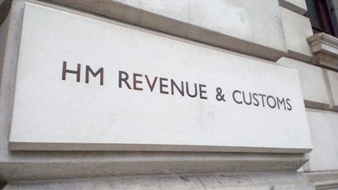香港:新らしいLPF法(リミテッド・・パートナーシップ・ファンド法)

2020年9月
寄稿者:Dominik Stuiber、ゼットランド香港本社、代表取締役
香港にて新しく施行された、LPF法(リミティッド・パートナーシップ・ファンド法)の下で組成されるPE(プライベートエクイティ)やベンチャーキャピタルについての紹介
(※リミティッド・パートナーシップは、日本では有限責任組合や合資会社にあたります)
香港は中国に次ぐ、アジアで二番目に大きなPE(プライベートエクイティ)市場を抱えており、オーストラリアを含むシンガポール、インド、韓国、日本、東南アジアや中国を含むアジア内における現地企業やスタートアップ企業の民間企業に対してPEファンド(プライベートエクイティファンド)による資金調達をしています。
香港にて扱われているPEファンドの多くは米国デラウェア州、ケイマン諸島、ルクセンブルグ、ジャージー、及び中国などにて組成されています。香港にて施行された今回の新しいLPF法(リミティッド・パートナーシップ・ファンド法)により、今度は香港にてPEファンドの組成が多く行われることが期待されています。
香港にはすでに世界中から多くのファンドマネージャーが集まっており、ファンド関連の専門サービスも多く存在し、地理的にもアジアで取引されるファンドの組成地として既に適切な環境が整っています。ファンド自体が香港内で組成できることによってより効果的な一括管理が行えることになります。
中国の投資家の間におけるPEファンド市場は急成長を遂げており、現在そのファンドの多くはオフショアにて組成され管理されています。同時に、中国における市場自由化も進んでいます。そんな中国のPEファンド投資家にとって、香港証券取引所への投資は魅力があります。それは香港が唯一オフショア人民元を扱う場所であり、またどのオフショア国より香港は他国との二重課税条約を多く結んでいることにあります。
リミティッド・パートナーシップ・ファンド制度
リミティッド・パートナーシップ・ファンド条例(Cap.637)が2020年8月31日に施行され、香港にてリミティッド・パートナーシップという形を利用してプライベートファンドの組成が可能になりました。
LPF(リミティッド・パートナーシップ・ファンド)とは、リミティッド・パートナーシップを設立し、投資家の利益のためにファンドを運用することを指します。LPF制度では、ファンドは最低一人のGP(ジェネラル・パートナー)とLP(リミティッド・パートナー)から成り立ちGP(ジェネラル・パートナー)は無限の、LP(リミティッド・パートナー)は有限の責任を有します。
LPF(リミティッド・パートナーシップ・ファンド)はリミティッド・パートナーシップ条例(Cap. 37)の元に組成され、LPF(リミティッド・パートナーシップ・ファンド)として会社登記所に登録されその管轄下におかれます。
香港で組成されるLPF(リミティッド・パートナーシップ・ファンド)はその他の国々と同じく、それ自体に「格」がありません。LPF(リミティッド・パートナーシップ・ファンド)のパートナーはファンドの運営について自由な契約を締結することができ、最低資本金の条件や投資に関する制約、またはファンド戦略に関する規定もありません。
GP(ジェネラル・パートナー)は負債や義務に対しては無限責任を負い、ファンドの運営や経営に関しての責任を有します。一方、LP(リミティッド・パートナー)は出資側で、所得や利益に対して報酬を得ることができ、ファンドの運営は行いません。LP(リミティッド・パートナー)の責任は有限で、出資額以上の負債は負いません。
また、LPF(リミティッド・パートナーシップ・ファンド)は既存のファンド免除制度の要件を満たしている場合において、香港にて所得税が非課税とされます。
LPF(リミティッド・パートナーシップ・ファンド)の登録条件は以下となります;
- リミティッド・パートナーシップ合意契約書の作成。
- 最低一人のGP(ジェネラル・パートナー)と一人のLP(リミティッド・パートナー)から成り立つ。
- GP(ジェネラル・パートナー)は自然人、香港法人、及び香港で登録されている海外法人、または香港以外で組成されたリミティッド・パートナーシップ(格の有無に関わらず)が可能。
- LP(リミティッド・パートナー)は自然人、法人、パートナシップが可能。
- 同じグループ会社の法人のみによるパートナー構成は不可(ただし特別な条件の下では可能)。
- 香港に登記オフィス住所を有すること。
- ファンドの名称は英語または中国語、及び英語と中国語両方の表記が可能。語尾には必ず「Limited Partnership Fund」または「LPF」または中国語の名称の場合は「有限合伙基金」が付くこと。
非課税
香港で設立されるLPF(リミティッド・パートナーシップ・ファンド)は、UFE(Unified Fund Exemption)制度のもと、特定の取引から得る利益が非課税の対象となります。
特定の取引とは、証券取引、株取引、先物取引、FX取引、銀行への預金、その他の金銭貸し借り目的以外の預金、譲渡性預金、上場商品、外貨変換、店頭デリバティブになります。この非課税制度であるUFE(Unified Fund Exemption)制度は2019年4月1日より有効です。これにより、香港では国内にてPEファンドを組成しフルに運用することが可能になりました。ただし非課税であっても香港におけるコンプライアンスへの準拠と登記やファイリングは必要になります。
香港でファンドを組成するのメリットの一つとして、近年オフショアにて実施されてたオフショア法人に対する経済実態要求がない点があります。香港においてオフショアと同じ実態要求がないため、ファンドから分配やキャピタルゲインを得るにあたり、実態要求に準拠する必要がないのもメリットの一つです。
証券先物委員会(SFC)ライセンスについて
PE法人(未公開株式投資会社の香港におけるライセンスの不必要は、運営方法によって異なります。
香港にリミティッド・パートナーシップを使ってPEファンドを組成し香港で運用を行っていく場合は、GP(ジェネラル・パートナー)は「タイプ9(Type 9)」の資産運用ライセンスの取得が求められます。これはGP(ジェネラル・パートナー)が経営責任をもってファンドを運用し、そしてリターン及び運用手数料やその他の報酬を受け取る場合です。
ただし、GP(ジェネラル・パートナー)が運用を行わず運用部分を第三者のサービスに託した場合には、ライセンスは不要です。この場合、第三者は香港外でも構いません。よって、香港におけるライセンスの必要性は香港で組成されたファンドに対していうより、どこで誰が実際の運用を行っているかによります。
タイプ9のライセンスにて、タイプ1のライセンスが許す共同投資へのオファーやマーケティング活動などの付属的活動を行うことも可能ですが、PEファンドの資金集めに関連する活動に限られます。
証券先物委員会(SFC)における「証券(Securities)」という用語は広義的な意味を持ちますが、非上場企業の証券取り扱いの場合は除外され、非上場企業の株式投資やその運用にあたってはライセンスは求められません。非上場企業の傘下法人や傘下における資産の運用にもライセンスは求められません。
香港における今回のLPF制度(リミティッド・パートナーシップ・ファンド制度)は、シンガポールを見習っており、シンガポールが先にシンガポール籍ファンドを制度化したことに続きます。国内(オンショア)でのファンド組成のトレンドに、香港も加わる形になります。
シンガポール籍のファンドである「バリアブル・キャピタル・カンパニー(VCC)」については、こちらの過去の記事 をご参考ください。
また、香港におけるLP(リミティッド・パートナーシップ)の組成については弊社発行のガイド ブックをご参照ください。
ゼットランドでは香港に拠点を持ち香港法人設立から香港籍のファンドの組成についてサービスを提供しております、またシンガポール支店ではシンガポールにおける同様のサービスも提供しております。お問い合わせは日本で intray@zetland.biz まで。
An introduction to Hong Kong’s New Limited Partnership Fund (“LPF”) Law for Private Equity and Venture Capital
Hong Kong is currently the second largest private equity (“PE”) centre in Asia after Mainland China. It offers equity financing to predominantly private companies across Asia for local and regional start-ups in Australia, Singapore, India, Korea, Japan, South East Asia and Mainland China. Most of the PE capital that is advised from Hong Kong is sourced from funds domiciled in Delaware, the Cayman Islands, Luxembourg, Jersey and Mainland China. The new LPF looks to address this by providing a more attractive environment for PE funds to domicile in Hong Kong. Hong Kong is well-placed to become a fund domicile for PE funds that have a primary investment focus within Asia. Hong Kong is centrally located within the region and neighbouring Mainland China, the largest Asian PE investment destination in Asia. Hong Kong has the largest single concentration of fund managers and advisers of any Asian city and a deep pool of professional service providers. Being able to consolidate the domicile of the PE fund vehicle and fund manager provides operational efficiency. China’s outbound PE investment capital is growing rapidly with many leading mainland investors developing offshore operations. At the same time the financial market liberalisation in Mainland China is deepening. The Hong Kong stock exchange provides an attractive exit option for PE investors. Hong Kong is the largest offshore Renminbi funding centre for companies to raise Renminbi capital. Hong Kong has a wider network of Double Tax Agreements than offshore fund jurisdictions which are under increasing scrutiny.
The Limited Partnership Fund (“LPF”) Regime
The Limited Partnership Fund Ordinance (Cap. 637) establishes a new limited partnership fund regime to enable private funds to be registered in the form of limited partnerships in Hong Kong. The ordinance came into operation on 31 August 2020.
A LPF is a fund that is structured in the form of a limited partnership for the purpose of managing investments for the benefit of its investors. A fund qualifying for registration under the LPF regime must be constituted by one general partner (GP) who has unlimited liability in respect of the debts and liabilities of the fund, and at least one limited partner (LP) with limited liability.
The LPF regime is a registration scheme administered by the Companies Registry. A fund set up in the form of a limited partnership registered under the Limited Partnerships Ordinance (Cap. 37) may be registered as an LPF if it meets the eligibility requirements under the Ordinance.
In line with industry standards elsewhere, the LPF will have no separate legal personality. The partners in a LPF, have freedom of contract in respect of the operation of the fund. There is no minimum capital requirement and there is no restriction on the investment scope and strategy of the LPF.
The GP will have unlimited liability for all the debts and obligations of the LPF and has ultimate responsibility for the management and control of the LPF. A LP has the right to participate in the income and profits arising from the LPF only without any day-to-day management rights or control over the LPF’s assets. At the same time, a LP will not be liable for debts and obligations of the LPF beyond the amount of its agreed contributions.
The LPF can enjoy exemption from profits tax provided it meets the conditions of the existing funds exemption regime.
For a fund to be eligible to be registered as a LPF, it must:
- be constituted by a limited partnership agreement;
- have one GP and at least one LP:
- a GP can be a natural person, a private Hong Kong company or an overseas company registered as a non-Hong Kong company. A non-Hong Kong limited partnership with or without legal personality is also eligible to be a GP; and
- the LP must be a natural person, a company, a partnership or other entity;
- not have all partners which are corporations in the same group of companies unless certain conditions are met;
- have a registered office in Hong Kong; and
- have an English name, a Chinese name or a name that includes both an English and a Chinese name. The name must include the words ‘Limited Partnership Fund’ or ‘LPF’ or ‘有限合伙基金’ if it has a Chinese name.
Tax Exemption
Funds registered under the LPF regime will be able to avail exemption from Hong Kong tax under the Unified Fund Exemption regime (“UFE”) in relation to profits from specified transactions.
Specified transactions refer to earnings resulting from dealing in securities, shares in private companies, futures contracts, foreign exchange contracts, deposits other than those made by way of a money-lending business, deposits made with a bank, certificates of deposit, exchange-traded commodities, foreign currencies, or OTC derivatives. The UFE became operative on 1 April 2019 under the Inland Revenue Ordinance. With that Hong Kong has a private equity fund exemption regime which allows funds to fully domicile onshore. Although the profits are tax exempt, compliance and accurate filings must still be adhered to and requires the understanding of the workings of the tax exemption regime by LPFs.
A further benefit of establishing funds with operations fully onshore in Hong Kong is that funds are able to meet substance requirements that overseas jurisdictions typically require in order to grant tax treaty benefits, such as on dividends and capital gains. Hong Kong’s growing list of comprehensive double tax treaties provides some of the lowest treaty rates with major jurisdictions.
Securities and Futures Commission (SFC) Licensing Requirements
A PE firm may be required to be licensed for one or more types of regulated activities depending on the types of business it conducts in Hong Kong.
For a PE fund constituted in the form of a limited partnership, including the new LPF regime, where the GP assumes ultimate responsibility for the management and control of the fund and in return receive management fees, carried interest or other remuneration, it is generally required for the GP to be licensed for ‘type 9’ regulated activity (Asset Management) if it conducts fund management business in Hong Kong. However, a GP would not need to be licensed if all of the asset management functions have been delegated to an appointed investment manager which is a licensed or registered entity to carry on such regulated activity. The LPF can be used as a fund that is managed from anywhere, not just in Hong Kong. Whether or not an entity or a person is required to hold the appropriate SFC license depends on whether that entity or person carries out regulated activities in Hong Kong, rather than the domicile of the LPF.
A type 9 Asset Management license would generally allow incidental activities otherwise regulated under a type 1 license, such as the offering of co-investment opportunities and the marketing activities of the fund to be carried out by the PE firm. Such an exemption would apply insofar as the activities form an integral part of the fundraising by the PE fund to secure capital to invest solely in its underlying assets.
While the term “securities” is given a wide definition in the SFO, investments in securities of private companies are expressly carved out. In applying this carve-out the SFC will consider the composition of the entire investment portfolio including any Special Purpose Vehicle and its underlying assets.
With the LPF regime, Hong Kong follows Singapore’s Variable Capital Company (“VCC”) regime capturing the trend of fund onshoring.
For more information see Our LP Guide or contact our Hong Kong office at intray@zetland.biz.












